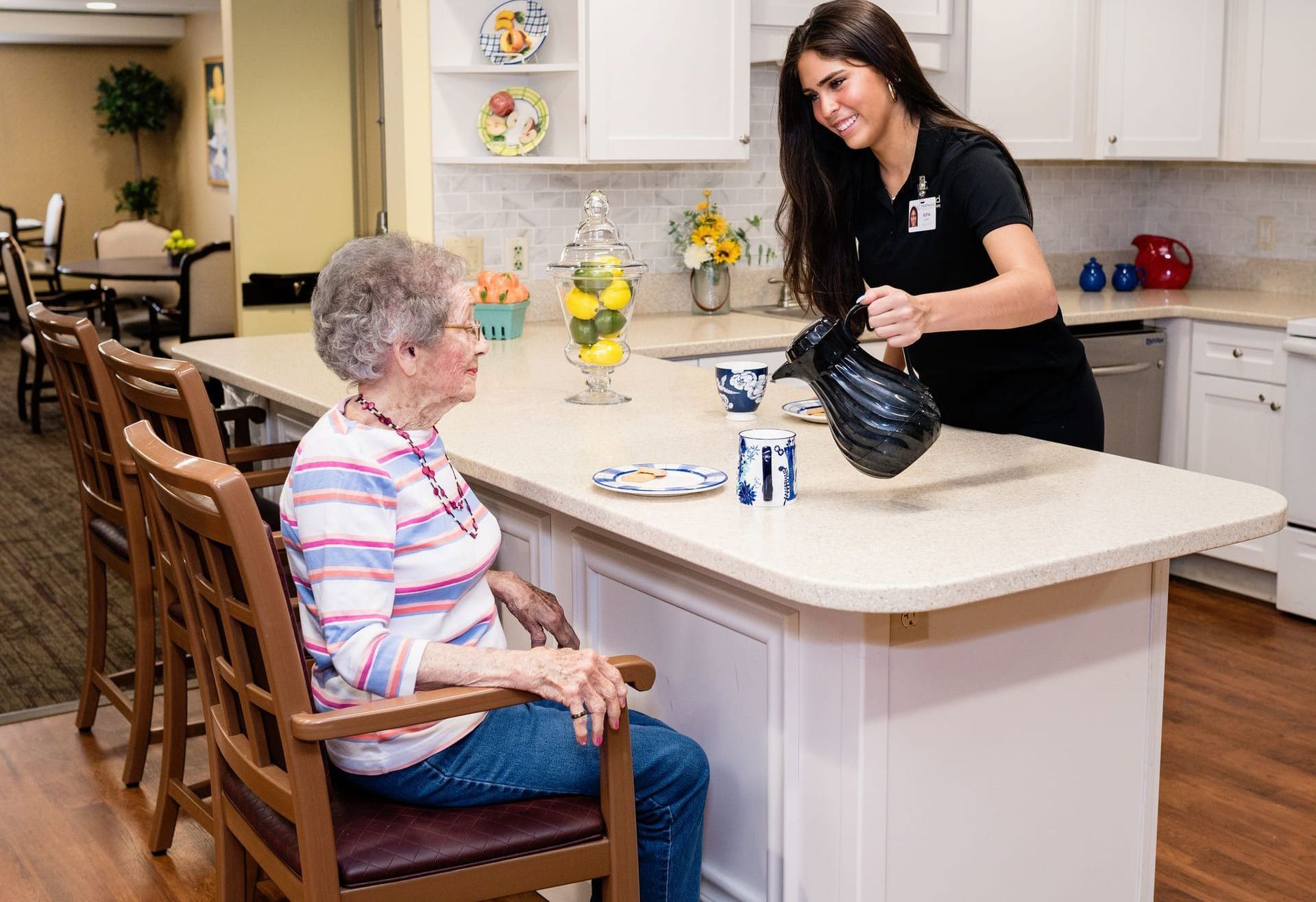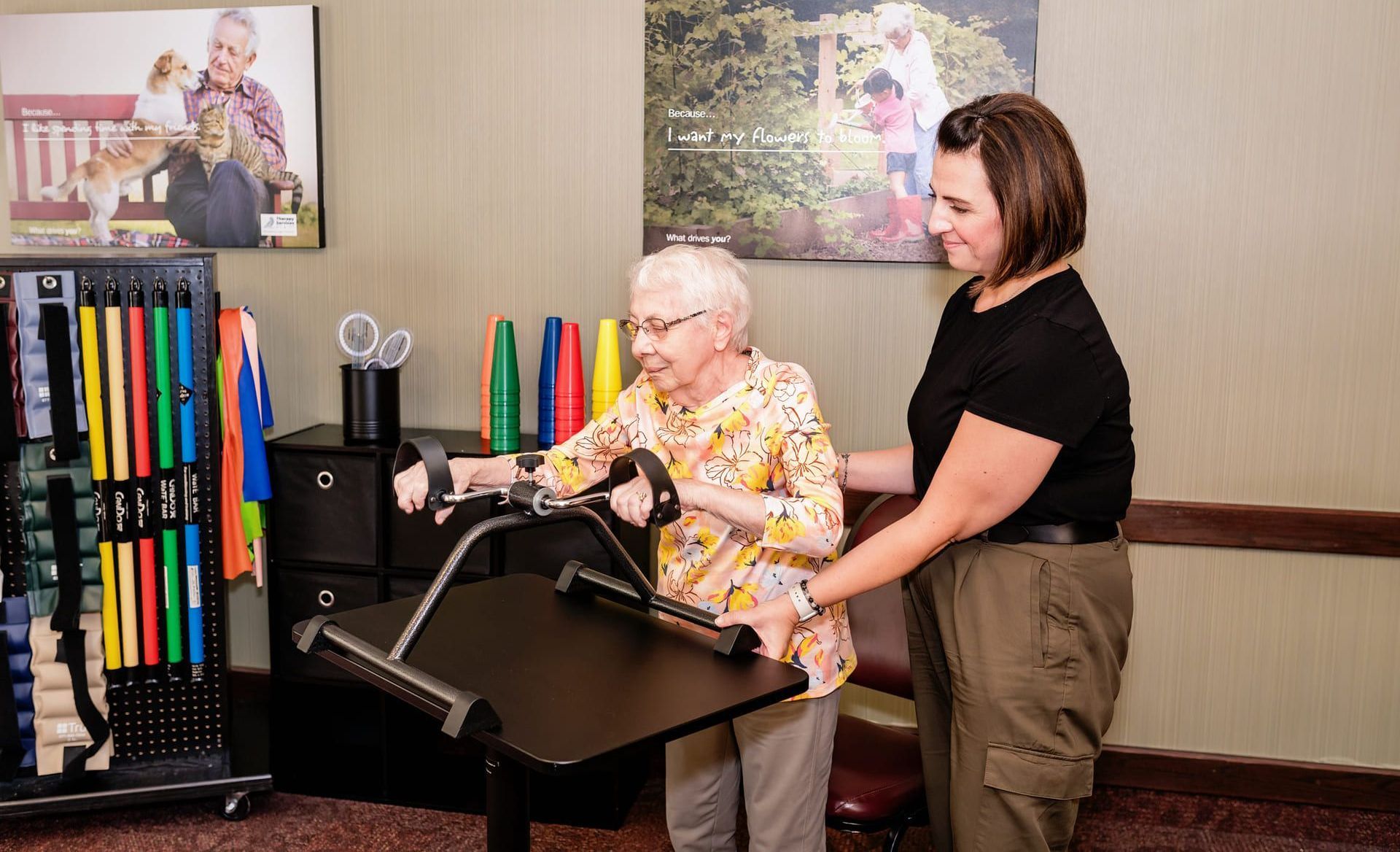Assisted Living vs. Nursing Homes: What's the Difference?

As we age, many of us will face the challenge of selecting the right long-term care option for ourselves or our loved ones. Two common choices are assisted living facilities and nursing homes. Still, it's essential to understand the differences between these options to make an informed decision that suits your unique needs and preferences. This guide will explain the key differences between both in terms of level of care, amenities and services, living spaces and flexibility.
What is Assisted Living?
Assisted living facilities like Heathwood Assisted Living & Memory Care offer a comfortable blend of independence and support. These communities are ideal for seniors who can self-manage but need assistance with daily activities. This option is excellent for individuals who want to maintain autonomy while having the peace of mind that help is always available.
Level of Care
Assisted living is ideal for those who can self-manage but may require reminders or help with tasks like dressing, bathing, redirection, or medication management. Heathwood also offers Enhanced Services that allow seniors who need extra help to walk, get in and out of bed or a chair, use medical equipment, or manage conditions such as urinary incontinence.
Amenities and Services
Assisted living communities prioritize lifestyle and engagement. They offer amenities such as exercise classes, communal dining spaces, theaters, and a variety of recreational activities to promote an active and fulfilling lifestyle.
Living Spaces
Assisted living units often resemble apartments, featuring a small kitchen, bedroom, and living area. Residents have the opportunity to socialize in common areas, fostering a sense of community.
Flexibility
Residents in assisted living can usually come and go as they please, enabling them to enjoy outings, visits, and even time out of the facility. There is a more relaxed daily schedule, allowing residents to choose their daily activities.
What is a Nursing Home?
Assisted living is commonly confused with nursing homes, but there are significant differences between them. Nursing homes, also known as skilled nursing facilities, are best suited for individuals with more complex medical needs or severe impairments. These facilities offer 24/7 medical care and assistance with activities of daily living (ADLs).
Level of Care
Nursing homes are suitable for individuals with chronic illnesses, severe mobility issues, or complex medical needs. These facilities provide round-the-clock nursing attention and advanced medical equipment.
Amenities and Services
Nursing homes prioritize medical care and services. Amenities are typically limited to necessities like meals and hygiene to meet residents' medical needs.
Living Spaces
In most nursing homes, residents may share rooms, resulting in less personal space. The environment often feels clinical and less home-like due to the emphasis on medical care.
Flexibility
Nursing homes usually follow strict schedules for meals, medications, and therapies due to the medical requirements of residents. Residents may have limited mobility and are generally only allowed to leave with medical clearance.
Consider Heathwood Assisted Living For Your Loved Ones
Both assisted living and nursing homes have their own sets of benefits and limitations. Assisted living offers more freedom and is geared toward individuals who require minimal medical intervention. Nursing homes are better suited for those who need intensive, round-the-clock medical care.
So, which one's right for you? The answer depends on your unique needs and lifestyle preferences. Consider your unique situation, consult with healthcare professionals, and visit facilities to make the best choice for you or your loved one. Ultimately, the goal is to ensure a safe, comfortable, and fulfilling living arrangement during the later stages of life.
Feel free to reach out to us at
Heathwood Assisted Living & Memory Care for more personalized guidance!











